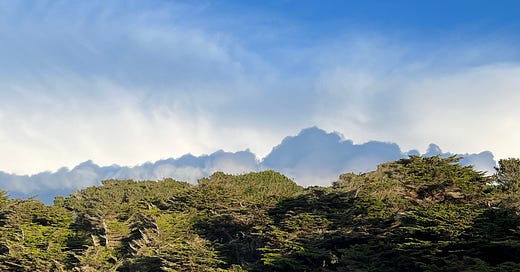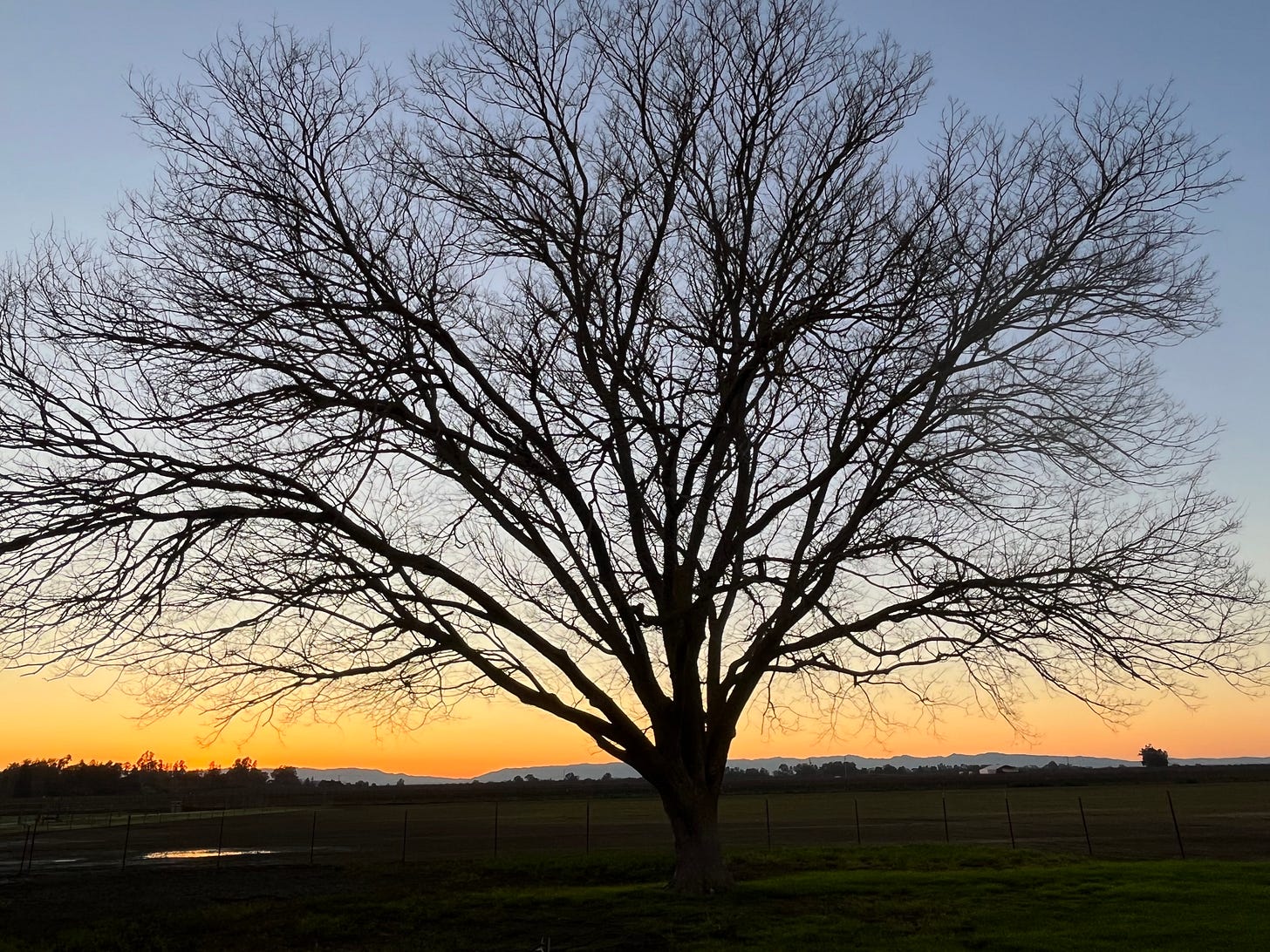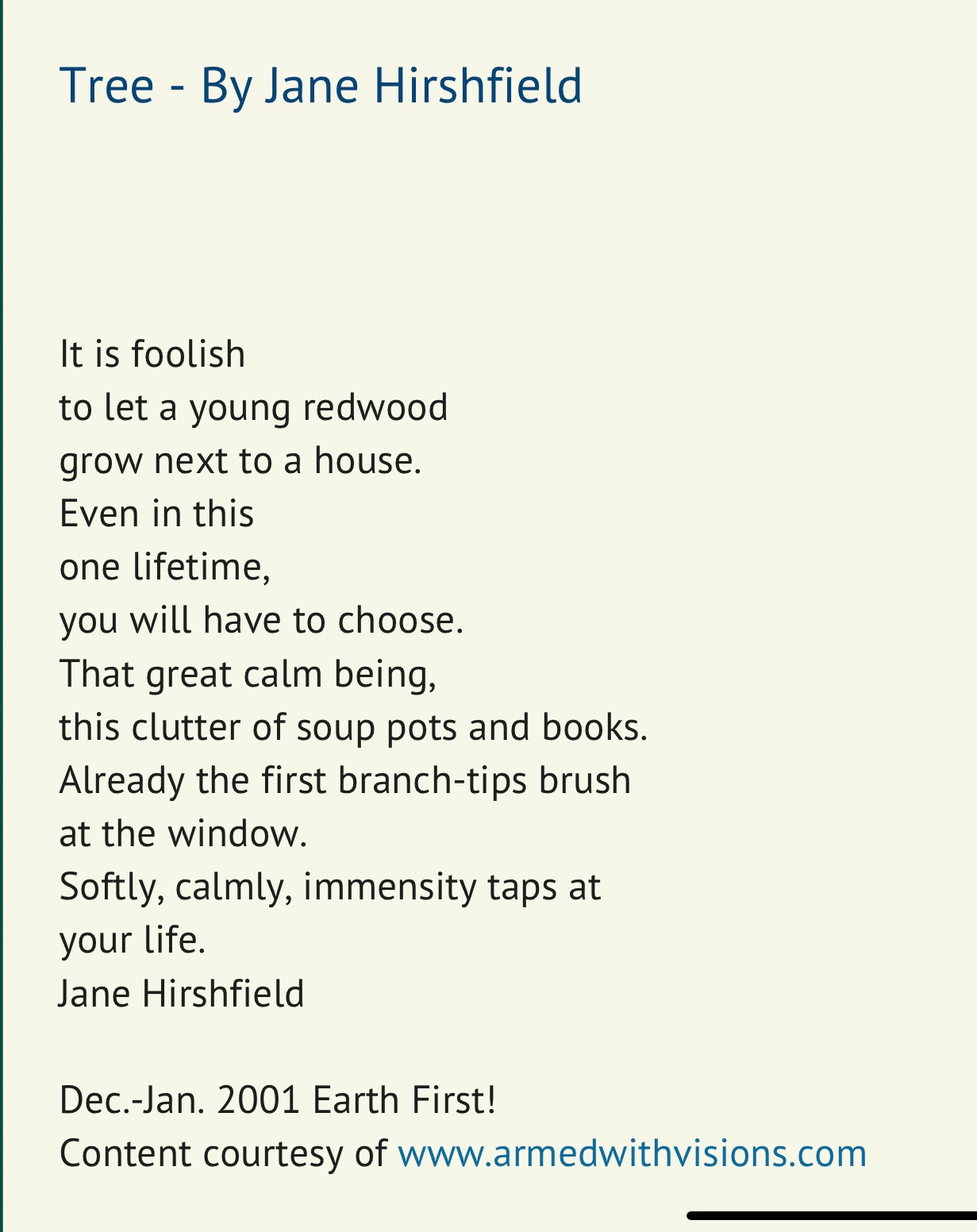A Bouquet of Thoughts to Celebrate Earth-Love
Poetry and prose that remind us of our deep connection to Mother Earth
Welcome! You’re at Mother E, a free newsletter exploring our kinship with nature in a climate-changing world. If you missed the last edition, it’s viewable here: Prickly Secrets of Desert Plants
If this newsletter gets shortened by an email program or the images don’t show, you can read it on the website here. To get Mother E coming to your email box every other Sunday, sign up below.
This post published the week of Valentine’s Day, 2023. I’m sending a little love your way with a “bouquet” of poems and prose that celebrates our appreciation for the more-than-human world and the enchantment Mother Earth offers back.
I’m also marking two years of publishing Mother E (January 2021-2023). Writers need readers, and I thank you for your reading attention, feedback, and encouragement! 💚
Robin A.
Prose and Poetry for Valentine’s week
Alone in that country where poems are born in the stillness of things. Light is frail now. Purple is the color of the world and the day becomes a stretch of open water freckled by rain, depthless and pure. Alive. Ready for the challenge of being.
From the book “Embers, One Ojibway’s Meditations” by Richard Wagamese
Rachel Carson, marine biologist and author, is best known for her book Silent Spring and her actions to stop the use of toxic chemicals like DDT, but she also had a poetic side and a deep love for the ocean. Here, she tells us of a moment of sheer joy.
One stormy autumn night when my nephew Roger was about 20 months old I wrapped him in a blanket and carried him down to the beach in the rainy darkness. Out there, just at the edge of where-we-couldn’t-see, big waves were thundering in, dimly seen white shapes that boomed and shouted and threw great handfuls of froth at us. Together we laughed for pure joy—he a baby meeting for the first time the wild tumult of Oceanus, I with the salt of half a lifetime of sea love in me. But I think we felt the same spine-tingling response to the vast, roaring ocean and the wild night around us.
Rachel Carson, from her book The Sense of Wonder
Barbara Kingsolver, an author and scientist, lived in the desert near Tucson, Arizona for years. She installed an earthen berm on her property in a small seasonal drainage ditch she had widened, waterproofed and lined with rocks. The result was a pond in the desert that seemed to magically attract a whole host of wildlife: plants, birds, reptiles, insects and mammals. Here, she marvels at the jewels of dragonflies.
Last May, I saw a dragonfly as long as my hand…she circled and circled, flexing her body, trying to decide if my little lake was worthy of her precious eggs. She was almost absurdly colorful, sporting a bright green thorax and blue abdomen. Eventually she lit on the tip of a horsetail plant that sends long slender spikes up out of the water.
She was joined on the tips of five adjacent stalks by five other dragonflies, all different: an orange-bodied one with orange wings, a yellow one, a blue-green one, one with a red head and purple tail, and a miniature one in zippy metallic blue. A dragonfly bouquet. Be still, and the world is bound to turn itself inside out to entertain you. Everywhere you look, joyful noise is clanging to drown out quiet desperation. The choice is draw the blinds and shut it all out, or believe.
Barbara Kingsolver, from her essay “My Desert Pond” published originally in High Tide in Tucson: Essays from Now or Never (1995)
Southwest desert wilderness can feel mysterious and intimidating with the challenge all living things share of finding water. Life there is sometimes balanced on the edge of survival. The following verses are from Casa de Cuerva, 501 poems, written by my son Ethan, who spent countless days and nights exploring desert canyons in the Santa Rosa mountain range of Southern California.
Ethan Applegarth—three verses from Casa de Cuerva
#2 WOOD GATHERING
There is a certain Zen about wood gathering That branch: too wild and twisted That one: too delicate to take This: too close to home That other: too alone, too much in its own place All wood’s too good to take Each year a fresh crop of wood Each year new decisions made
#50
Is it wind or is that The stones’ rollicking In the swift stream Where the willows play?
#102
He lay quietly to one side and passed Knowing finally his careful place to rest Between two stones, one small, one large The pup grew long-sighted Ceased his breath Lay stiff with small paws crossed
I live immersed in a forest of trees, mostly redwoods. If you, like me, are an ardent admirer of the unique forms trees take and the numerous benefits they provide us, you might relate to this poem by Jane Hirshfield. What a choice she poses!
Genevieve Taggard was an early 20th century poet who often wrote about natural places with a sense of personal relationship. The following poem, from her book of poetry, Slow Music, even has a feminine sensuality. It mentions the Greek goddess Demeter who brought the grain harvests in but also withheld her bounty from the earth in the winter months when her daughter Persephone lived in the underworld.
Demeter In your dream you met Demeter Splendid and severe, who said: Endure. Study the art of seeds, The nativity of caves. Dance your gay body to the poise of waves; Die out of the world to bring forth the obscure Into blisses, into needs. In all resources Belong to love. Bless, Join, fashion the deep forces. Asserting your nature, priceless and feminine. Peace, daughter. Find your true kin. —then you felt her kiss. Genevieve Taggard
Richard Wagamese’s book Embers is a lovely collection of thoughts on merging the sacred with with the mundane, and the effort to bring indigenous traditions back. He weaves conversations with wise elders such as his “spiritual father” and a female elder throughout this book. His writings show a deep current of love for Mother Earth, our sustaining force.
The sun spills gloriously over the mountain and the lake comes alive with light. It’s as though it were suddenly filled with stars. I love that ordinary magic, the world doing its thing, becoming and being all at the same time, its evolution like ours should be—natural, easy, like light spreading diamonds everywhere.
Richard Wagamese, from the book Embers, One Ojibway’s Meditations

Celebrate that “ordinary magic” of life evolving all around us every moment. Happy Valentine’s week!
I like to hear from readers! You can reach me privately by responding to this email, or leave a public comment at the button above.
If you missed last year’s Valentine’s post, it included love notes others wrote to various species, here. 💚
If you’re not subscribed to Mother E yet, you can sign up below to get insights every other Sunday on our relationships to other species in a climate-changing world.
Robin Applegarth







Another treat from you, Robin. Thank you.
Peaceful thoughts and beautiful photographs can't think of a nicer Valentine's Day gift.
So lovely 💕